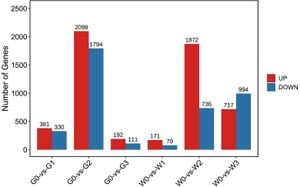The Vietnamese government is embarking on significant changes to its import tax policies, with plans to implement new customs procedures for low-value imported goods sent via express delivery. Starting February 18, 2025, the General Department of Customs will begin collecting value-added tax (VAT) on these items, marking the end of their previous exemption.
According to the General Department of Customs, as per the Prime Minister's decision issued on January 3, 2025, "From February 18, 2025, low-value imported goods sent via express delivery will no longer be exempt from VAT." This shift aims to enforce compliance within the taxation framework established under Vietnamese law and increase revenue for the state budget.
The new regulations are intended to standardize the process for managing customs declarations and taxation on low-value goods, particularly those shipped quickly rather than through traditional freight methods. Previously, these items, often cheaper consumer goods, were exempt from VAT, allowing for easier market entry and more accessible goods for consumers. Nonetheless, the new measures signal the government’s intent to regain control over tax revenue from this burgeoning segment.
The process of VAT collection will necessitate accurate customs declarations either electronically or via traditional paper methods until the new online system is completely functional. Given the impending implementation date, the General Department of Customs anticipates substantial work for their officials during this transitional phase, as they will need to verify and confirm VAT obligations manually.
Concerns do arise over the readiness of the new system, especially as customs prepares under contract for the necessary updates to handle the additional workload efficiently. The challenge remains to integrate these requirements without overwhelming the existing framework, as officials gear up to manage both online and paper submissions related to VAT on low-value imports.
The potential economic effects of these changes are considerable; it is estimated the introduction of VAT at 10% on low-value imports could bolster state revenues by approximately 2,700 billion VND. For reference, the total value of goods imported under this category through express delivery services reached 27.7 trillion VND in 2023.
Many stakeholders, including businesses and consumers, are watching closely how these changes will play out. For businesses shipping goods, this means adjusting their pricing strategies to accommodate the new cost of VAT, and for consumers, it may result in price increases on certain low-value imported goods.
While the General Department of Customs is preparing for the rollout, support channels have been established for individuals and businesses to seek assistance. A dedicated support center has been put in place to troubleshoot and answer inquiries about the new tax policies, highlighting the government's commitment to smooth implementation.
The upcoming changes to the import tax policy represent not only regulatory shifts but also underline Vietnam's broader economic goals. By enhancing VAT collection on low-value goods, the government aims to create a more structured and predictable trade environment. Such measures, albeit potentially burdensome for some, reflect Vietnam's aspirations for fiscal responsibility and greater oversight on imported goods.
Overall, the changes set for February 2025 are poised to reshape the way low-value goods are taxed and managed, signaling Vietnam's proactive steps toward more comprehensive economic governance.



